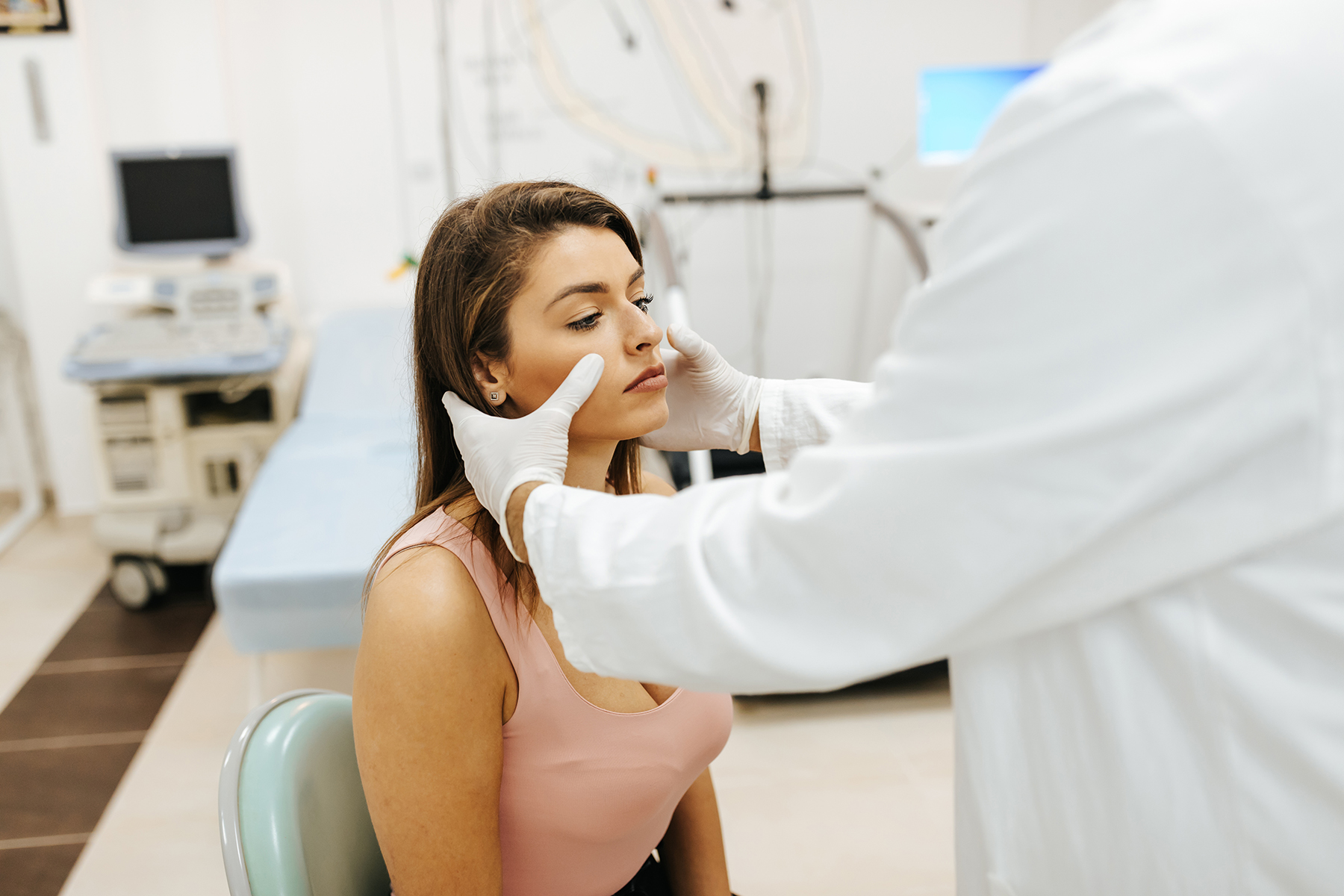What is Ramsay Hunt Syndrome?

Imagine not feeling well with an earache and then developing facial paralysis and an extremely painful rash on your ear. That is what happens when you have Ramsay Hunt Syndrome or RHS.
Like shingles, the reactivation of the virus that causes chickenpox causes RHS. This often occurs in times of stress or when you are immunocompromised.
In fact, shingles and RHS are actually one and the same. The difference is that when facial paralysis is involved, we refer to it as RHS. When the condition occurs in any other part of the body, we call it shingles.
So, if you have had chickenpox, you can develop RHS. However, it is very rare. In fact, the National Library of Medicine website reports that RHS “has an incidence of about 5 per 100,000 people per year.”
You are far more likely to develop shingles, which will affect approximately one in three people.
What are the symptoms of Ramsay Hunt Syndrome?
According to UHealth otolaryngologist and facial paralysis expert, Liliana Ein, M.D., patients experience an acute onset of facial weakness usually on one side, dizziness/vertigo, hearing loss, and a painful vesicular rash (fluid filled) on the outer ear, which is a tell-tale sign of RHS.
“It is very painful during the acute period and the associated rash,” says Dr. Ein. “Patients also experience continued pain in the eye due to lack of blinking and drying out of the cornea.”
Every case of RHS is different, some patients recover in weeks and others take up to a year to recover. Unfortunately, some people will have permanent symptoms. If treatment is started within three days after the symptoms begin, you have a better chance of a full recovery.
“Usually, patients who experience prolonged periods of complete paralysis (no movement in the face whatsoever) are more likely to have residual symptoms,” says Dr. Ein.
“So, for example, if your face is completely weak for only a few weeks and then starts to recover function, then you are likely to have no residual symptoms.”
On the other hand, if your face is completely weak for 2 to 4 months before even the first flicker of movement, then you are likely to develop permanent symptoms. Tightness in the face due to nerves regenerating incorrectly is one example of lasting effects. Another complication is synkinesis, which is when your muscles contract involuntarily when you attempt to move. For instance, your eye may close when you smile.
How is Ramsay Hunt Syndrome treated?
Seek care from a physician as soon as you have symptoms. You will have better outcomes if you begin treatment within three days of onset.
“We treat patients with oral steroids and antivirals, and sometimes pain medications to help with the ear pain,” says Dr. Ein. “Patients are also advised to take very diligent care of their eye with constant lubrication to prevent corneal injury.”
Once facial movement starts to reappear, a physical therapist who specializes in facial paralysis begins targeted facial neuromuscular.
“If patients develop synkinesis, then we treat the spasms and tightness in the face with physical therapy, Botox, and surgery,” says Dr. Ein.
Can other conditions cause facial paralysis?
According to the National Library of Medicine, Bell’s palsy is the most common condition that causes paralysis of the face affecting approximately 10 to 15 people in 100,000 every year.
Dr. Ein says they believe Bell’s palsy is caused by the reactivation of the herpes simplex virus. It is usually less severe than RHS and does not affect hearing or balance. Other infectious causes of facial paralysis include middle ear infections, meningitis, and Lyme disease.
“There are so many different causes of facial paralysis, and every patient is different so patients should seek out treatment from a specialist to make sure they are getting the appropriate treatment and care,” says Dr. Ein.
Natasha Bright is a contributing writer for UMiami Health News.
Tags: bell's palsy, Dr. Liliana Ein, facial paralysis, herpes zoster, Ramsay Hunt Syndrome, shingles
